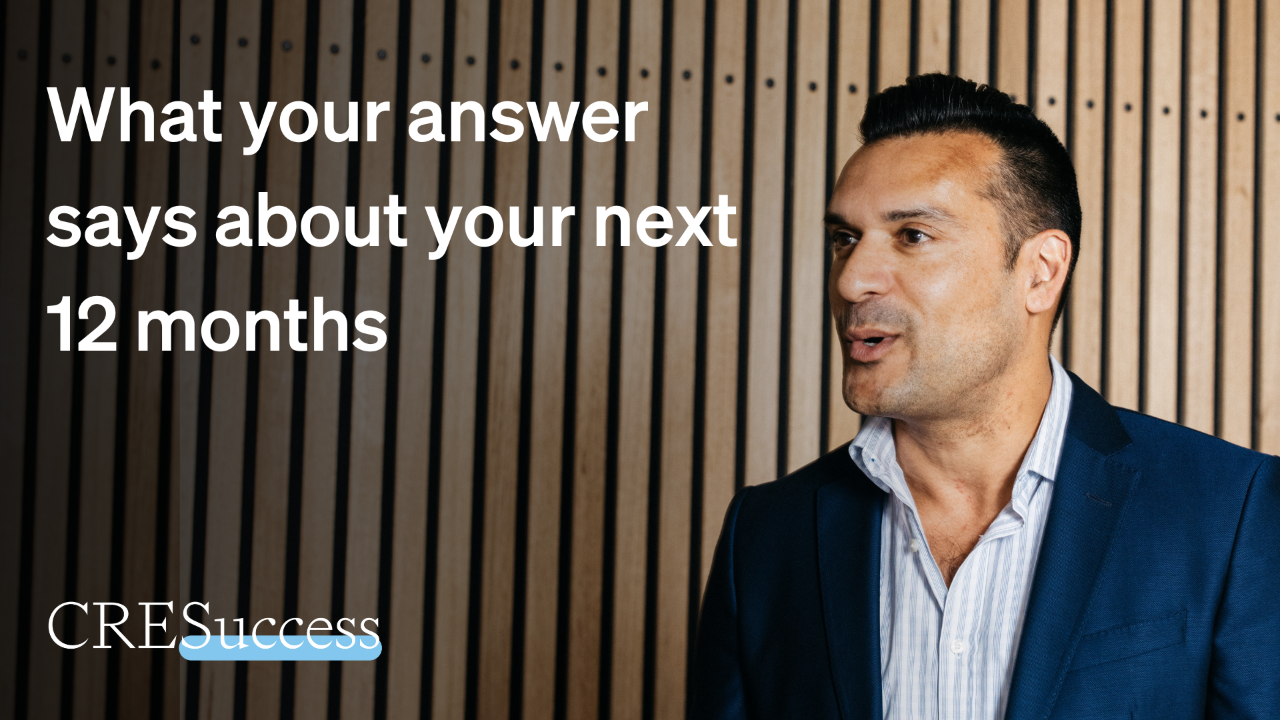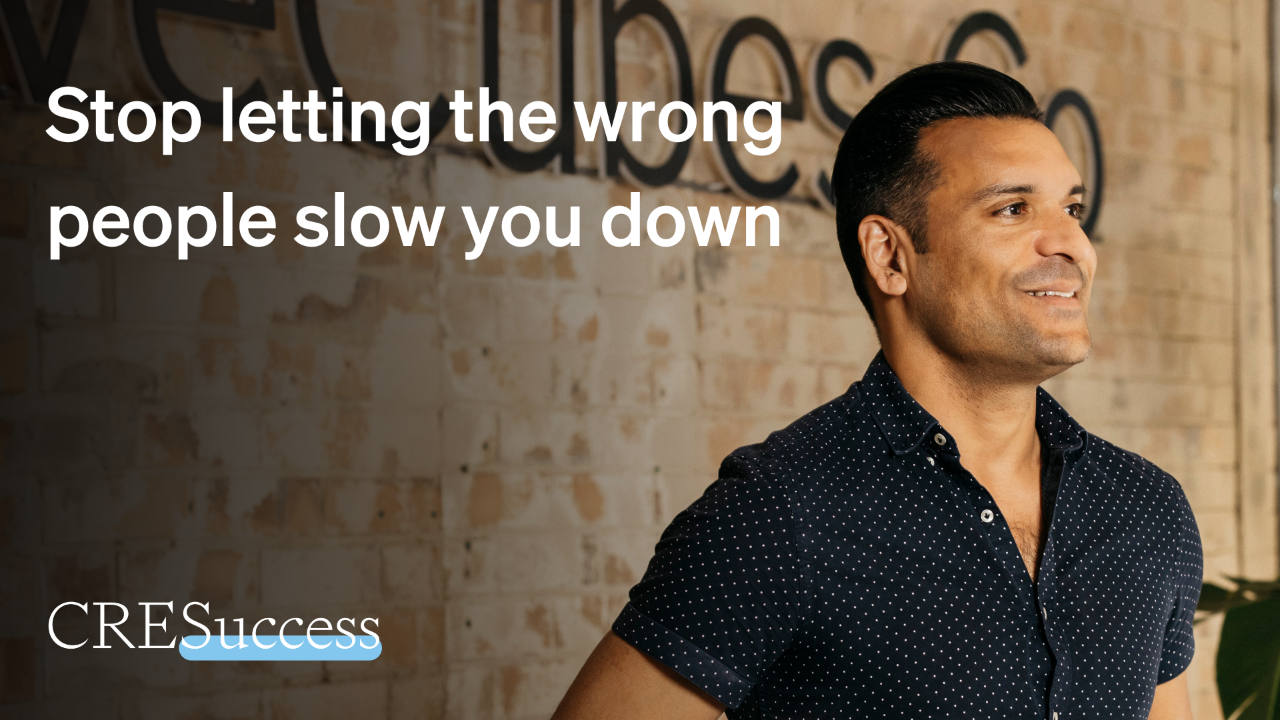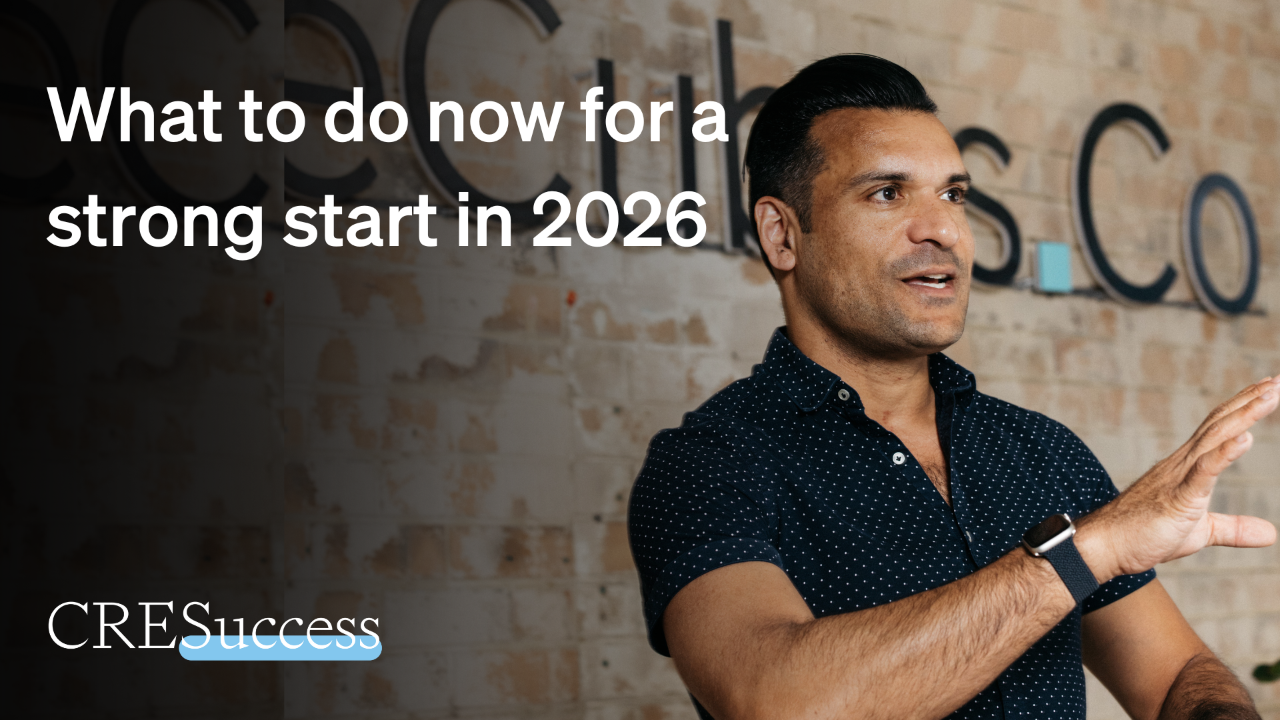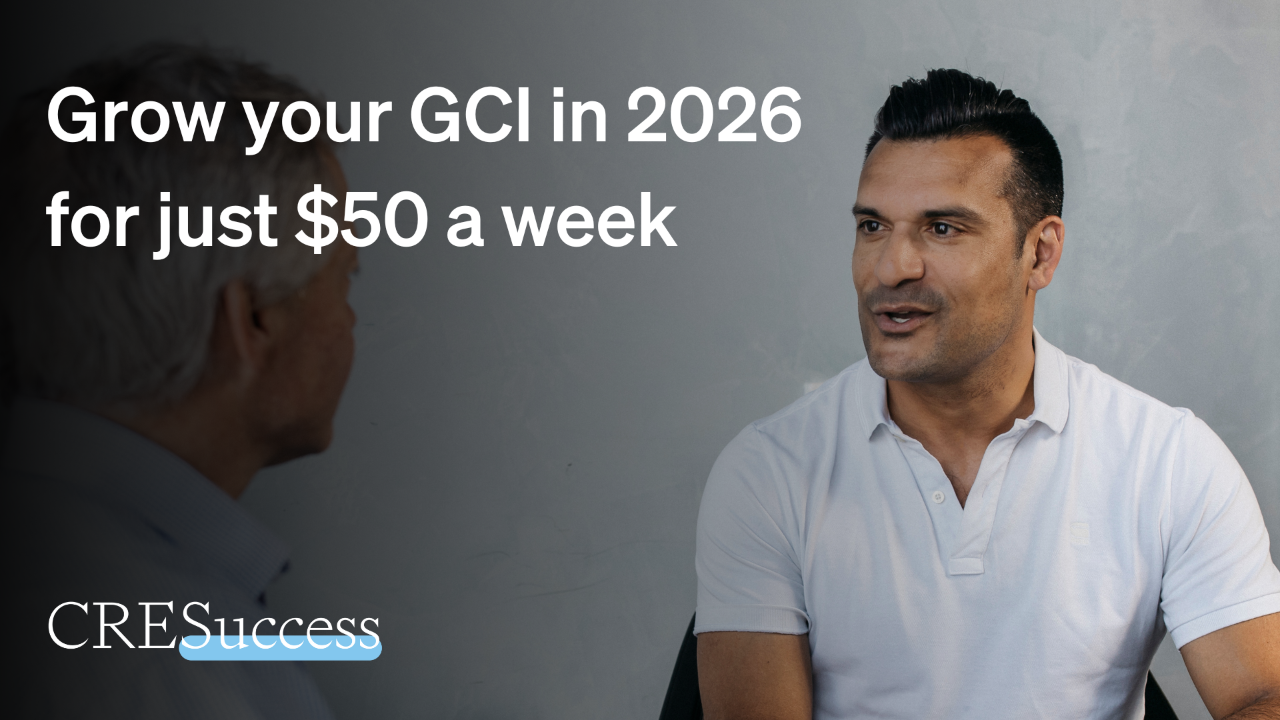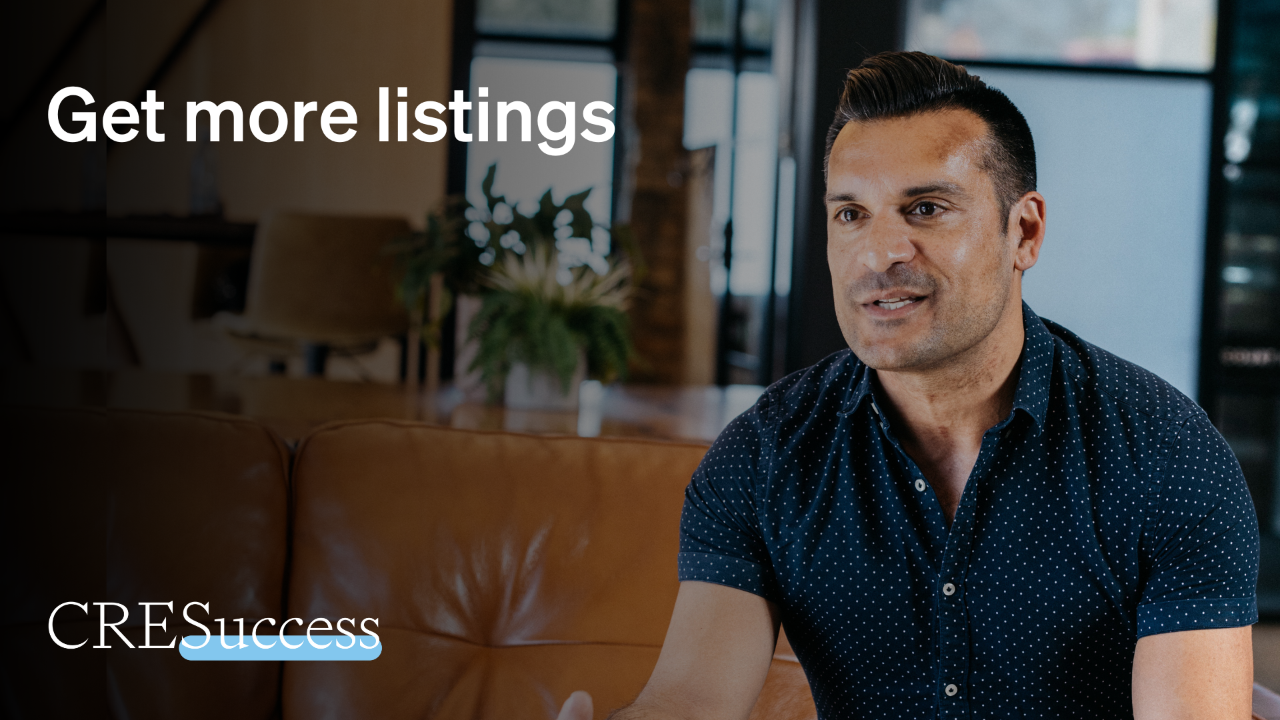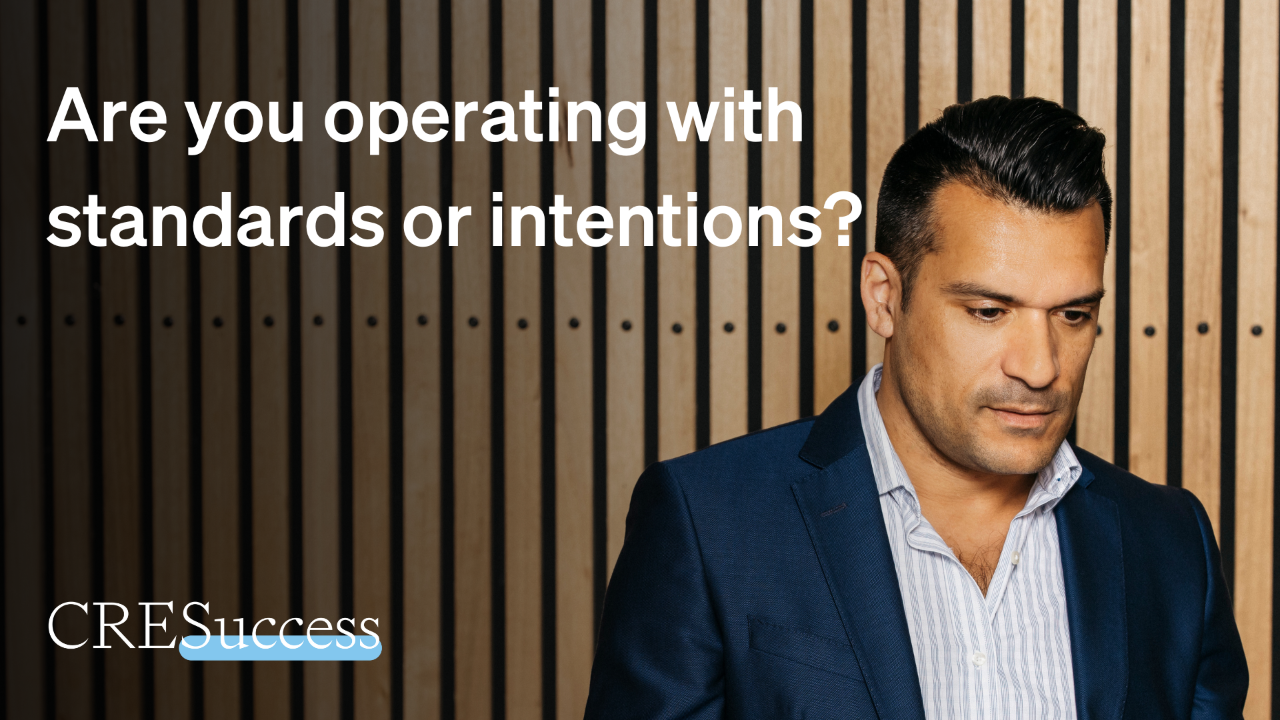What I’ve learned about consistency from releasing 200 podcast episodes.
Dec 04, 2024
CRE Success Principle: Consistency isn’t an accomplishment—it’s a strategy that demonstrates reliability and builds up trust over time.
When I launched my podcast in June 2020, I didn’t know where it would take me.
What I’ve discovered since is that consistency matters more than perfection.
Fast forward to today: we’ve hit 200 episodes of Commercial Real Estate Leadership.
That’s four and a half years of showing up and sharing insights with people in the industry just like you.
But here’s something else I’ve learned along the way—creating consistent content isn’t just about building a library of episodes.
It’s about helping people get to know your approach, decide if they resonate with it, and gain confidence in working together.
The same principle applies more broadly in business.
When you consistently show your expertise and values, the right people will find you—plus the wrong ones will move on.
And when people who aren’t a good fit decide to go in another direction, that’s a win in and of itself.
Because it gives you more time to focus on the people who you are best positioned to serve.
In episode 200 of Commercial Real Estate Leadership, I reflect on this journey and share some lessons that might be relevant for you.
Thank you for your support along the journey.
Episode transcript:
Let's get ready for the balloons to drop. Cue the confetti cannon.
It's time to celebrate 200 episodes of Commercial Real Estate Leadership.
Hello and welcome to episode 200 of Commercial Real Estate Leadership. I'm your host, Darren Krakowiak.
Really appreciate you joining us for our 200 episode.
I did go back and listen to episode 100 just to give myself reminder of how we mark these milestones.
And I specifically made the point that 100 episodes is not an accomplishment. It's just an activity.
If you want to know the origins of that statement, you can go back and listen to episode 100.
Which is true, right? All I've done is just do the same thing consistently over four and half year period. And that's got me to 200 episodes.
So, rather than being an accomplishment, it just says that I have been consistent with this activity and maybe that sends a message around my reliability.
And the episodes also, I think, do provide some transparency about my approach.
And people who choose to listen to the podcast and then come back and listen more will either be drawn more towards what I believe and what I do or they will be pushed away.
And for the people who are pushed away, that's absolutely okay because it means that they're actually doing me a favor.
They're saving me time from going through a painful process of starting to work with somebody and then me or them realizing that we are not a good fit.
Now, I don't know if producing podcast is necessarily great ROI for you.
But do think that the principle of being consistent and putting out some content to help people understand if they resonate with your approach, there is some value in that.
A library of content, whether it be a blog, an Instagram page or even just some featured content on your LinkedIn profile that people can click on and then potentially browse through or even binge if they really like it, that will help people make decision about working with you.
And I think it's better to provide them with that than to provide them with nothing and to start from zero.
When you have content out there, when you have things that people can consume, that helps nurture people. It helps warm them up.
And as I said, it either I guess, it brings people towards you or it pushes them away and that's completely okay.
So, in our 200 episode today, I thought I'd just share a little bit about like why it is that this podcast exists and maybe the origin story.
Remember when a certain president couldn't say “oranges”, the “origins” story, not the “oranges” story.
Alright, so the origin story is that at first I was thinking about starting this podcast before I started CRE success.
So, when I came back from living in Korea for 11 and half years in 2019, I was working for one of the big firms.
And I actually suggested to the marketing team, “Hey, why don't we start a podcast? This is the concept. This is how it will work. I'll take responsibility for this and this. I've got experience in radio.”
And for whatever reason, it didn't get legs at the time.
But what it did do was give me concept that was ready to go once I started this business.
When I left that firm in early 2020, I started CRE success in April 2020.
And by June 2020 the first episode of what was then known as CRE Success: The Podcast was launched.
And we had guests, every episode I drew people from my network, but also people who wanted in my network to be guests.
People who I thought could impart knowledge, were willing to share some of the secrets of their success with our audience.
We also had sponsors from day one and was very proud of the fact that I was able to, I guess, convince two different companies in commercial real estate to become sponsors of the podcast before we'd even released one episode.
So, I basically shared with them the vision I had for the show and they agreed to sponsor with real money, like contracts for thousands of dollars to be sponsors of that first season of the podcast.
And I think that was a little bit audacious of me to think that people would pay for being a sponsor of a podcast that hadn't even been released yet.
But that audaciousness served me well because we had those two sponsors.
Then I had another sponsor.
So, sponsoring created some credibility for the show.
And it certainly made me more motivated to produce a very high-quality product.
And when I first started doing the show, I was doing all of the pre and post production.
Well, at first, I outsourced it to an agency.
I wasn't really happy with how this so-called podcasting agency was doing.
So, then I just insourced it but delegated it to my virtual assistant and now she takes care of all that post-production.
And when I started the podcast, I first committed to 20 episodes to season one. And then I did some bonus episodes. And then I did season two, another 20 episodes.
And I guess there were some things that led to me changing the format.
One was that getting lots of guests to come onto the show was not always easy.
Having people commit to being guests is kind of like herding cats because some people will say that they will and then they won't.
Some people, “um and ah” about it. Some people just don't want to be involved and it makes people uncomfortable.
And another thing that happened was at some point when maybe I was having some trouble with getting people to commit or the right people to commit, someone told me a story about their podcast.
And this was somebody who she had done, I think at that stage, like 300 podcasts, and she was pretty well qualified to be giving advice on podcasts.
And she said at the time that, “You're better off just doing solo episodes than having guests on your podcast because solo episodes position you as the expert, whereas when you interview someone that positions them as the expert.”
And when she said that I thought there was a bit of truth in that.
And also thought it would be a much easier way to produce a podcast.
Now, some people might say, “It's actually harder to do it yourself because then you've got to come up with the content.”
But I actually thought it would be easier to produce solo episodes.
So, from episode 50 or 51 we started to do that.
And that positioned me as the expert.
And the other advantage that we got from that was I didn't need to ask anyone else's permission for us to share the podcast also on video.
So, we started to release the podcast on YouTube as well.
Now, while that was something which didn't require a lot of extra work, it probably was a little bit nerve wracking at the time for me to do it to camera.
And maybe I haven't developed that skill as much as I could or should have, given we've now got 150 episodes on YouTube.
And our YouTube channel, I would say is not particularly strong because this is content which we make as podcast, but we repurpose for YouTube.
But I do get some benefit because one, I guess, we are discoverable on YouTube and people can find us there.
The world's biggest search engine after Google is YouTube so people can find us there if they want to.
But also, every single podcast episode provides me with two posts for social media on LinkedIn and on Instagram.
And organic social media is big part of the overall marketing strategy of this business.
So, I guess one of the reasons why I've continued to do this podcast is because it continues to give me benefits.
Now about a year or so ago, we also changed the name of the podcast. No longer CRE Success: The Podcast. It became Commercial Real Estate Leadership.
And the reason for that change was that I started in a new coaching program and they were really strong on focusing on one niche.
And think when I started CRE Success as a business and also when I started the podcast, it was more just commercial real estate professionals.
And then I kind of niched down more into, “Okay, this is for commercial real estate agents and brokers and leaders.”
But by last year, it was very clear that the main part of my business, more than 80% of the revenue was from my private one-on-one coaching clients who are all commercial real estate leaders, business owners, principals.
So, I changed the name of the podcast to Commercial Real Estate Leadership.
I think it probably didn't expand the appeal of the show.
It's definitely drilling down and making it more of a niche show.
And when I started this podcast, I had big plans for every episode to be downloaded thousands and thousands at a time, but that's not how it's played out.
It is a niche podcast, but it does do what it's intended to do.
And that is, it is a place for my clients to hear from me every week.
And also, a place for people who maybe are considering becoming clients to get to know me more.
And to also draw some knowledge and to get some benefit and to take some value from the things that we are talking about.
And at some stage into the future, those people who are binges may become buyers, right?
So, if you want to know more about working with us, you know the drill. You can go to our Instagram page. @cresuccess is our handle on Instagram.
If you're not following us there, by the way, make sure you follow us on Instagram.
But also, if you're ready, send us message with the word “GROW” and we can have a chat about growing your business.
So, another thing that happened probably, well, few stages actually, I lost a little bit of motivation.
And even though that motivation would always come back when I would hear from clients saying, “Hey, liked that episode last week.”
Or I'd hear from people who weren't clients saying to me, “Hey, what you said last time really, really hit the mark.” Or, “I hope this is going well for you.”
Because it was something that I mentioned on the podcast that reminded me, “Okay, people are listening, I should keep going with this. It's providing available service to the industry.”
But sometimes you just get a little bit tired or you lose little bit of motivation.
And I was feeling that way around a year ago and I was telling one of my friends about it and they said, “Well, don't give up on the podcast just yet. What about if you just changed from weekly to fortnightly?”
And I thought that was actually good advice.
So that's what I did at the start of this year. It became a fortnightly podcast.
And some time, I think it was September, I got some motivation to recommit to doing weekly episodes.
So, if you listen to episode 187, you'll hear my, I guess, road back to weekly episodes.
And something funny happened when I recommitted to weekly episodes.
Only few weeks after that, I struck up a conversation with Cirrus 8 and they became our newest sponsor.
And we hadn't really been going after or targeting sponsorship for the podcast for a number of years.
I kind of got my head around that podcasting is not the main thing.
The main thing is the business and the podcast exists to support the business.
But I was still open to having a credible sponsor come on board and support this content.
And thankfully, we have that again, which is good.
So yeah, now we're doing it again weekly. I'm really excited for the next couple of episodes.
Before we break for the 2024 Christmas, New Year period, we are going to do a couple more episodes.
I want to do one about like “The importance of goal setting”, like “Why it is that you should be setting goals?”
And also, I want to take you through a bit of a goal setting exercise.
And as is tradition around here, I want to also share with you some of my book recommendations for the holiday period.
So, we've still got some great content to share with you before the end of this year.
As we wrap up this 200th episodes of the show, I want to take this opportunity to thank you.
If you're still here right now at the end of this episode, that means you are a loyal listener. So, thank you for being there.
If you do want to do something to help the podcast, then my request for it (and I don't really make this request much in the show if ever) is to tell someone that you know about the program.
If you think that the content that we are creating here would be of use to somebody you know, then why don't you just click the share button on your podcast player and send it in a text message or in an email to somebody and say, “Hey, I thought you might like this.”
And that will help spread the word and grow our audience here at Commercial Real Estate Leadership.
Alright, that is our episode for today. Thank you so much for listening and I will speak to you soon.


